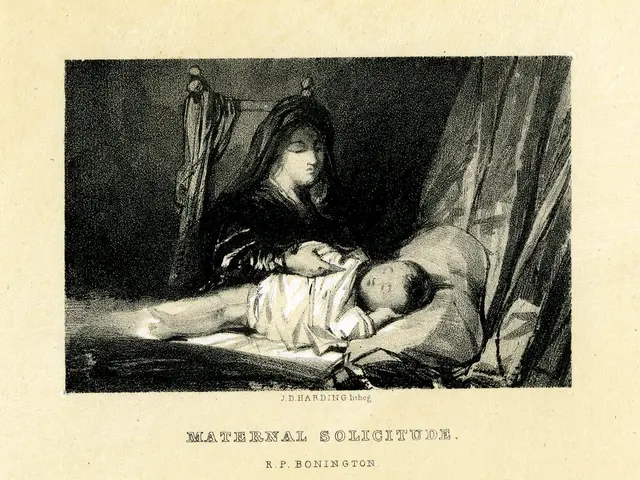Unveiled connection: Vitamin D may influence hormones linked to birth control effectiveness
Vitamin D and Birth Control: What You Need to Know
Embrace the sun, eggs, and fish, folks! That's right, these are some of the key players in maintaining proper levels of vitamin D, a nutrient that keeps calcium and phosphorus ticking along in your bloodstream. It also aids in the absorption of calcium, which is crucial for bone strength.
Now, you may wonder why we're chattering about vitamin D. Well, it seems there's a connection between this crucial nutrient and birth control pills. Researchers have discovered that women who take estrogen-based birth control tend to have higher vitamin D levels, while those who stop taking these pills face a significant drop in their D levels.
The brilliant minds behind this discovery conducted a study using data from the Study of Environment, Lifestyle, and Fibroids (SELF). They analyzed over 1,600 African-American women living in Detroit, MI, aged 23-34. To figure out each woman's vitamin D levels, they collected blood samples.
And guess what? Women who were using contraception containing estrogen showed significantly higher vitamin D levels compared to others. After accounting for various factors, these ladies had 20 percent higher levels of 25-hydroxy vitamin D — the most common circulating form of vitamin D.
This research sheds light on an interesting issue. Women who plan on getting pregnant should be cautious about their vitamin D levels, as they might become deficient right before and during pregnancy. Dr. Quaker E. Harmon - the genius behind this study - advises taking steps to ensure adequate vitamin D levels prior to conception and throughout pregnancy.
But, why does estrogen-based contraception boost vitamin D levels? Well, we're still figuring that out. One theory is that there could be alterations in the metabolism of vitamin D when estrogen is present. But, the exact mechanism isn't completely understood. More investigation is needed to untangle this mystery!
It's worth noting that this study focused specifically on African-American women. Dr. Harmon mentioned that the same association has been observed in non-African-American women as well. In the United States, African-American women tend to be more susceptible to vitamin D deficiency, so even small fluctuations in vitamin D levels can be crucial.
Dr. Harmon is continuing her exploration of this topic, following the women in the study and investigating the relationship between vitamin D and the menstrual cycle in other participants. If you're intrigued, take a deeper dive into research that links higher vitamin D levels to lower cancer risk! Stay curious, folks!
- This study performed by scientists on African-American women in Detroit, MI, revealed that women using contraception containing estrogen showed significantly higher levels of vitamin D.
- The health-and-wellness implication of this research indicates that women who plan to conceive should consider maintaining proper vitamin D levels, as they may become deficient before or during pregnancy.
- Science shows that multi-vitamins designed specifically for women's health can help address deficiencies in essential nutrients, such as vitamin D.
- The science behind the connection between estrogen-based contraception and increased vitamin D levels is still being researched, with promising theories like alterations in vitamin D metabolism when estrogen is present.
- Nutrition experts recommend taking a multivitamin and following a balanced diet rich in nutrient-dense foods like leafy greens, fortified cereals, and fatty fish to support optimal women's health and vitamin D absorption.
- Awareness of the interrelationship between vitamin D, birth control, and women's health is crucial to practicing responsible health-and-wellness behaviors and ensuring overall well-being.








